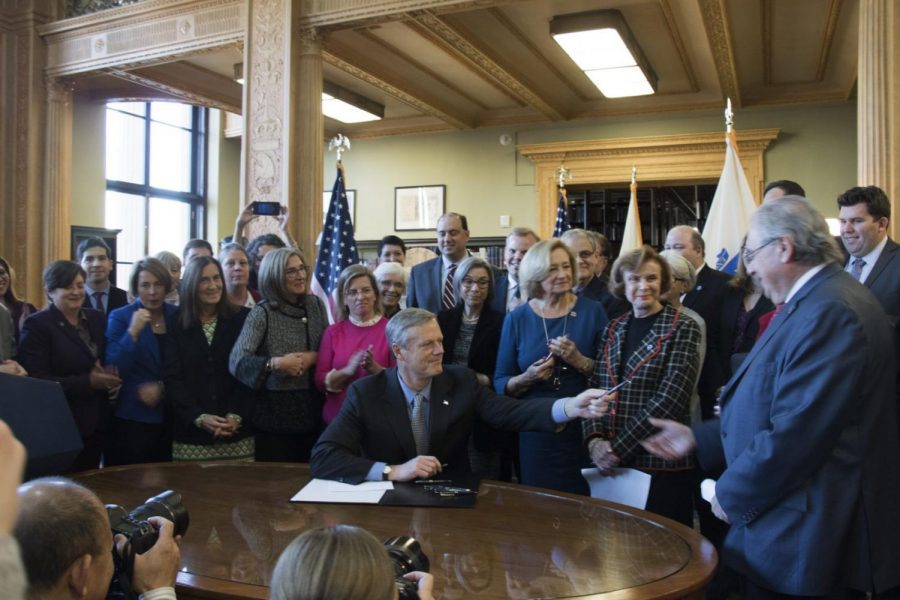Birth Control and Responses from Pentucket
December 18, 2017
Massachusetts: Free Birth Control
On October 6, the Trump administration made efforts to make it possible for employers to deny female employees insurance coverage for birth control.
On Monday November 20, Massachusetts Governor Charlie Baker signed a law working to override the Trump administration, making birth control accessible (by insurance coverage) for all women in Massachusetts. Baker signed the bill after it passed in the Massachusetts Senate 138-16.
Doctor Jennifer Childs-Roshak, who directs Planned Parenthood in Massachusetts, explained that the the bill was heavily supported by women, and men followed with little hesitation. Childs-Roshak elaborates on how birth control is an issue personal to both men and women; she explained how some people recalled “How they almost missed filling their prescription,” she said, “or they had to run to the pharmacy at the last minute to pick up their girlfriend’s birth control pills, or they had a condom break and needed emergency contraception. So this is something that really resonates with people across the board.”
Responses from Pentucket
In terms of how this affects Pentucket students and teachers, a sample of students interviewed supported Baker’s efforts to make birth control accessible for all Massachusetts women. In a small panel of seniors (two females and two males), one panel member explained that “when you kind of like threaten the freedom of like having it [birth control] makes people more aware of like how necessary it is, so I think um it’s definitely talked about more [under Trump’s presidency].”
Ms. Ducolon, English and writing teacher at Pentucket is completely in support of the new law, saying that “I love what he [Baker] did because he said…. I’m gonna have Massachusetts make this decision.” She also explained that some peoples’ perspectives on the issue may be clouded by their inability to realize the widespreadness of this issue, rhetorically asking that “If all people could get pregnant, we would not cover it [birth control]?”
Mrs. Kiernan, Spanish teacher at Pentucket, believes that a woman should be able to access birth control if she chooses but it should not be the responsibility of an employer to cover it with insurance. Being an Orthodox Catholic, she feels that “sex has a unitive and procreative purpose and when you take the procreative purpose away you’re diminishing it.” She also says that there is a “scientific way to do it [practice contraception] that is much healthier,” like “natural family planning” and/or “fertility awareness,” adding that birth control is “available pretty widely and not that expensive,” so “if you want it you should be able to provide it for yourself, and it is accessible.”
Along with the considerations of moral and religious beliefs in relation to birth control, Mrs. Kiernan also alleges that birth control can impact the environment.
A Brief Look at the Environmental Effects
Although the environmental effect of birth control is a concern for some, according to the Association of Reproductive Health Professionals (ARHP), “synthetic estrogen from birth control pills is not the sole or primary source of endocrine-disrupting chemicals in water.” The ARHP’s website illustrates that EE2 (a component of birth control pills) does not go directly into the water supply. (The photo below reveals that EE2 goes through multiple treatment facilities before getting to the point of potentially becoming drinking water.
Photo Source: www.arhp.org


